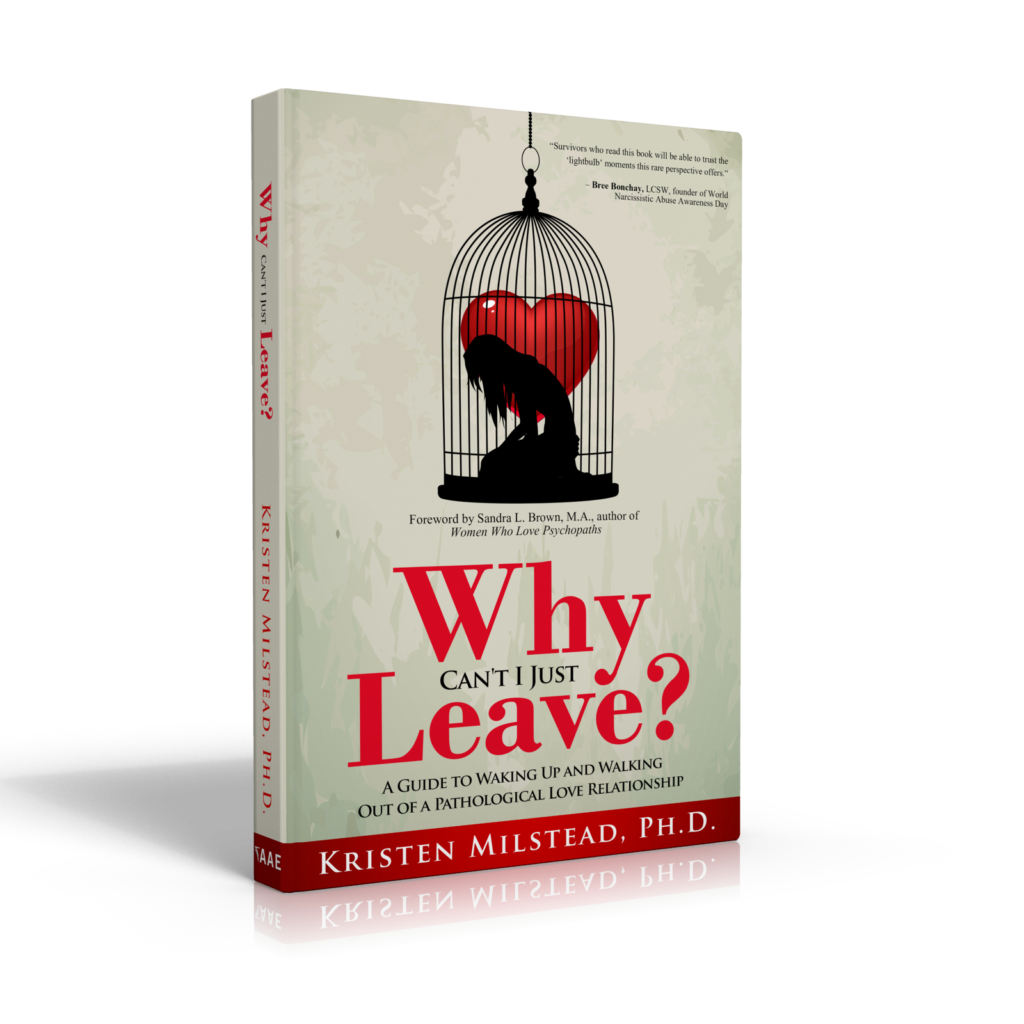In the film Eternal Sunshine of the Spotless Mind, after a couple goes through a bad breakup, each person in the relationship separately undergoes a medical procedure to have all memories of the other person entirely erased.
I always thought this was such a fascinating concept. If you remove the memories of someone, what remains?
If I grow and change through my interactions with others, does the changed version of myself remain if the other person ceases to exist in my world? Who do I become at that point?
If I have been traumatized by the relationship but it can no longer hurt me, what then will I believe is the source of the trauma– or will I simply believe that I am the trauma?
I had an opportunity to find out when I had Eye-Movement Desensitization and Reprocessing (EMDR) therapy.
Before my relationship with my ex-boyfriend, I had never heard of Eye-Movement Desensitization and Reprocessing (EMDR). I read about it in a book about types of trauma therapy for narcissistic abuse recovery. I didn’t pay much attention to it at first, because the idea of it sounded so strange at first.
What is EMDR?
EMDR is a type of therapy that can reduce the physiological distress associated with traumatic memories. The arousal triggered by those memories can be lessened or eliminated through this type of therapy when clients purposely focus on a memory and at the same time focus their attention, often visually, on something outside themselves.
It’s a nontraditional form of therapy because it doesn’t rely on talking about thoughts or feelings, but on stimulating the brain through the external environment. It is an attempt to change the emotions that people continue to feel months or years after an event by accessing the parts of the brain that are generating those emotions when the memories are triggered.
For example, during a therapy session, a person who has been in combat intentionally focuses on an actual memory of something disturbing that happened to them or that they witnessed during their tour, while at the same time watching a therapist’s hand movements or experiencing hand tapping.
There have been many studies that have shown EMDR to be very effective for a variety of traumatizing experiences, and not many sessions are needed until improvement begins to show when the person is out of a traumatizing environment.
EMDR appears to work because the rapid eye movement allows neural networks in the brain to open up to allowing access to the memories in ways that they can be cognitively processed differently in safe environments beyond the ones in which the original trauma took place.
The memories can then be replaced by empowering thoughts or feelings or sometimes fade. They often stop generating a level of arousal that triggers anxiety, nightmares, flashbacks, and other issues associated with Post-Traumatic Stress Disorder so that a person can begin to live a life free from the hold those memories have had over them.
How EMDR Can Help Someone Who Has Experienced Abuse
A person who has been in an abusive relationship may have many negative memories of one or several different types of abuse: physical, emotional, psychological, sexual, or verbal.
During a session of EMDR therapy, he or she is asked to focus on thinking about the details of a memory of one of the experiences of abuse while also viewing the external stimulus generated by the therapist for several seconds or minutes.
This focus on negative memories is generally interspersed with a discussion or focus on positive affirmations, memories, or new thoughts about how the memory feels. The therapist usually also discusses how to continue processing outside the sessions and to self-soothe.
Many things may happen to the negative memories of abuse during a session: their details may begin to fade; the experience may feel less immediate or all-encompassing; the memories may lose some or all of their emotional impact; the person may begin to view the memories differently– for example, with humor or pity for the abuser, by suddenly seeing him or her as ridiculous or the memories as not worth his or her time to dwell on.
Why does this happen? The brain is suddenly “unblocked” and the person in the therapy can think differently about the experience.
After experiencing EMDR, for many clients, the trauma itself fades in significance, and the experience itself will only have the meaning that the individual who lived it chooses to assign to it. Control is in the hands of the survivor.
Can EMDR Be Helpful for Narcissistic Abuse?
It’s easy to understand why someone screaming humiliating names at you, sexually assaulting you, or physically harming you is abusive.
It’s easy to explain it, too. When most people think of abuse, this is what they think about.
Yet this is why traditional definitions of abuse are not sufficient when it comes to narcissistic abuse because the damage done is not encompassed by talking about all of the traditional ways in which abusers hurt their partners.
Narcissistic abusers may do these things, but there is an added layer on top through which they control and harm their partners through intentional deception, brainwashing, and repeated betrayals of the partner’s core identity.
More specifically:
- Narcissists lie about who they are, their true intentions, their pasts, what they are really thinking, their emotions, who else they are involved with, and almost everything about themselves. Their partners can never be sure when they are telling the truth. They lie even to themselves and take advantage of the basic social contract that when two people enter a relationship, they are looking out for each other’s best interests as well as their own.
- Narcissists use the same tactics to brainwash their victims that are used by cults.
- Narcissists use their deception and brainwashing to continually betray their partners at the most intimate levels of the self beyond traditional forms of psychological abuse. This is often done through means such as using other people to triangulate the partner, developing two sets of rules and threatening to leave if this is not accepted, taking advantage of the cognitive dissonance that develops in the partner by using intermittent reinforcement.
Most of this happens covertly and without any “event” that produces a memory.
If there was an event, that individual act is often so minor and so petty, that it wasn’t the act itself that caused the trauma, but the buildup of dozens or hundreds of them over time, such as triangulating a partner with an ex through social media one “Facebook like” at a time.
Much of the damage done by a narcissist is done in the dark.
Long-term narcissistic abuse can cause brain damage, according to Kim Saeed, because it keeps the amygdala in a constant state of anxiety: “Victims of narcissistic abuse live in this state almost daily.” Saaed goes on to say that partners use a variety of tactics to try to manage it, including denial and compartmentalization.
I believe that this hyperarousal occurs because of the cognitive dissonance that results from the relationship, which is set into motion through the deception and maintained through brainwashing.
Saaed also suggests EMDR for correcting the brain damage done by narcissistic abuse.
You can diminish their devaluation through EMDR, but how do you reduce the trauma caused by the entire cycle of abuse in a narcissistic relationship?
How to Get an EMDR Therapist to Help You with Narcissistic Abuse
I have a wonderful trauma therapist, who has provided me with several sessions of EMDR.
“I think I can make the boyfriend go away,” she’d said to me.
She was able to assist me with the negative memories of many of the most horrible things he had done to me, and yet, before I had come to these realizations, something was still wrong.
I tried to explain what was still upsetting me: I had so many memories of our good times together. They flashed into my mind. They haunted me.
I knew that only people who had been in a relationship with a narcissist could likely understand. It was what they poison us with: themselves, or at least the mirror that reflects back what they have learned we’d like to see.
Real/not real. There/not there.
And this is how narcissists hurt us:
Deception.
Brainwashing.
Betrayal of our deepest selves.
Deception, by its nature, had no face. Brainwashing, by definition, had no conscious voice. Betrayal of my deepest self happened over time and not all at once.
Could EMDR help me get rid of damage that didn’t have any memories?
But wait– it did have memories. I’d just told her what they were.
The ultimate goal of the deception was to get me to have positive experiences so I would feel brainwashed into not leaving. So that he could betray me in a million different ways and I wouldn’t be able to walk away. So that I would want him still.
“Can you give me the EMDR for the good memories too?” I asked her. I’d already explained the relationship in brief as a whole (a contradiction in and of itself), his breathtakingly emotionless and shocking deceptions and ability to maintain multiple lives.
I told her that his ability to do that made the good memories painful because it made them feel so trivial, and the effect on me was that I felt worthless and empty because of them in the same ways his verbal abuse had made me feel. In a way, it was just another form of verbal abuse. It was the absence of information. It was verbal abuse through gaslighting and lies. It was the absence of himself and my reliance on his false self.
I explained that not being able to let the memories of the good moments go made me feel powerless, just as I had felt in the relationship because they weren’t real in the way I had believed them to be real.
She is very open-minded, and after listening to me, said right away, “Sure, let’s try it.”
I cried when I gave these memories up.
* * * * *
I have called it my “Eternal Sunshine of the Spotless Mind” therapy when I’ve explained EMDR to my friends and family.
It worked.
No, he was not erased by the therapy. I still remember him.
But he cannot hurt me anymore– not with the bad things he did to me, not with the good things we shared.
The only way to break the power, to remove the trauma, was to remove some manifestation of all of the ways he abused me.
If I have been traumatized by the relationship but it can no longer hurt me, what then will I believe is the source of the trauma– or will I simply believe that I am the trauma?
I am not the trauma.
I existed before this relationship and I am still here now






2 Comments
Anne
As you wrote in the article, narcissistic abuse doesn’t stem from one, big event that you can conjure up and think about during a therapy session. So I wonder what were you sharing/thinking about while doing the emdr sessions? I am also intrigued by the idea of releasing the positive memories, I am trying to leave an abusive relationship but I feel held down and even manipulated by the good memories. They make me feel like I am inventing the bad memories and all the horrible things I feel while being in this relationship.
Gloria Tanner
This has been very helpful and i intend on getting therapy. I have took the no contact approach and he is punishing me by stealing things out of my yard so i don’t have peace. There’s always something missing, even while i’m home. I walk outside and half of my tent is gone or my flag. He’s trying to torture me because i won’t talk to him or see him. He drives by all the time and stops and opens my gate and my neighbors gate. He wants me to be on the edge. I have made reports to the police and stood my ground on no contact. The only other thing i can do now is get therapy. This has and continues to be a long hard traumatic road. I would like to know where i can go to get this therapy. I’d love to have peace again. I crave it. I long for it. Can you point me in the right direction? Is this therapy available easily? I have heard of it but i’m really interested in it now that i’ve read your story. Any information would be appreciated. Thank you. Nadene